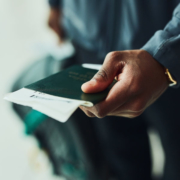Exploring different visa categories available to foreign spouses
/in 2024, News, Visa Category /by xp-adminSpousal Visas
A Visitor’s Visa issued in terms of section 11(6) of the Immigration Act, more commonly referred to as a Spousal Visa, allows the foreign spouse of a South African citizen or permanent resident to live and work in the country. Typically, the duration of the visa is between 3 months to 3 years, and it can be renewed. Applicants must prove their relationship is genuine and subsisting, often through a marriage certificate or affidavit. The Spousal Visa provides a pathway to permanent residency, especially for those in long-term, stable marriages, and allows the holder to work, study, or conduct business activities in South Africa, making it a flexible option for building a life in the country.
Submitting in South Africa or Abroad
Regardless of where the application is submitted, certain general requirements must be met to qualify for a Spousal Visa in South Africa. Key requirements include proving a good faith spousal relationship, possessing a valid passport, obtaining a medical report, and securing police clearance certificates. First-time applicants are generally required to submit their applications in their country of origin or where they hold long-term status. However, changing an existing status may allow for submission within South Africa.
Recent Developments
Recent amendments to the Immigration Regulations have strengthened the provisions for exceptional circumstances outlined in the Immigration Act, aligning them with Constitutional imperatives. These changes, prompted by Constitutional Court decisions, aim to address limitations and expand the scope of exceptional circumstances, particularly in response to the evolving socio-economic landscape. The amended Regulations now allow spouses, parents, and children of South African citizens or permanent residents to change their visa status or conditions within South Africa.
Long-term Visitor’s Visas
For spouses of foreign nationals, a different visa category under section 11(1)(b)(iv) of the Immigration Act exists, which allows them to accompany their spouse during their stay in South Africa. This Visitor’s Visa is granted for specific purposes prescribed by the Regulations, such as accompanying a spouse with a valid long-term visa. Applicants must meet general requirements, including possessing a valid passport, medical report, and police clearance, along with a letter of support detailing the visit’s purpose and duration and proof of sufficient financial means. Similar to Spousal Visas, first-time applicants must generally apply from their country of origin, with limited options for changing status within South Africa.
During Xpatweb’s recent Global Mobility Conference, esteemed members of Robert Bosch and the Permits Foundation addressed the difficulties faced by accompanying spouses in acquiring the requisite visas to facilitate their sojourn in South Africa alongside their spouses who have acquired work visas. As such, it was recommended that the Department of Home Affairs considers the adoption of a visa category specifically tailored to accompanying spouses to facilitate their sojourn and employment within South Africa, as the current visa category available to them does not allow them to take up employment.
In conclusion, securing a Spousal or long-term Visitor’s Visa in South Africa requires careful attention to eligibility criteria and the submission process. Recent amendments to the Immigration Regulations have introduced important changes that may benefit applicants, particularly those looking to adjust their visa status within the country. By staying informed and seeking professional advice, when necessary, foreign spouses can successfully navigate the visa application process and build a life in South Africa alongside their loved ones.





